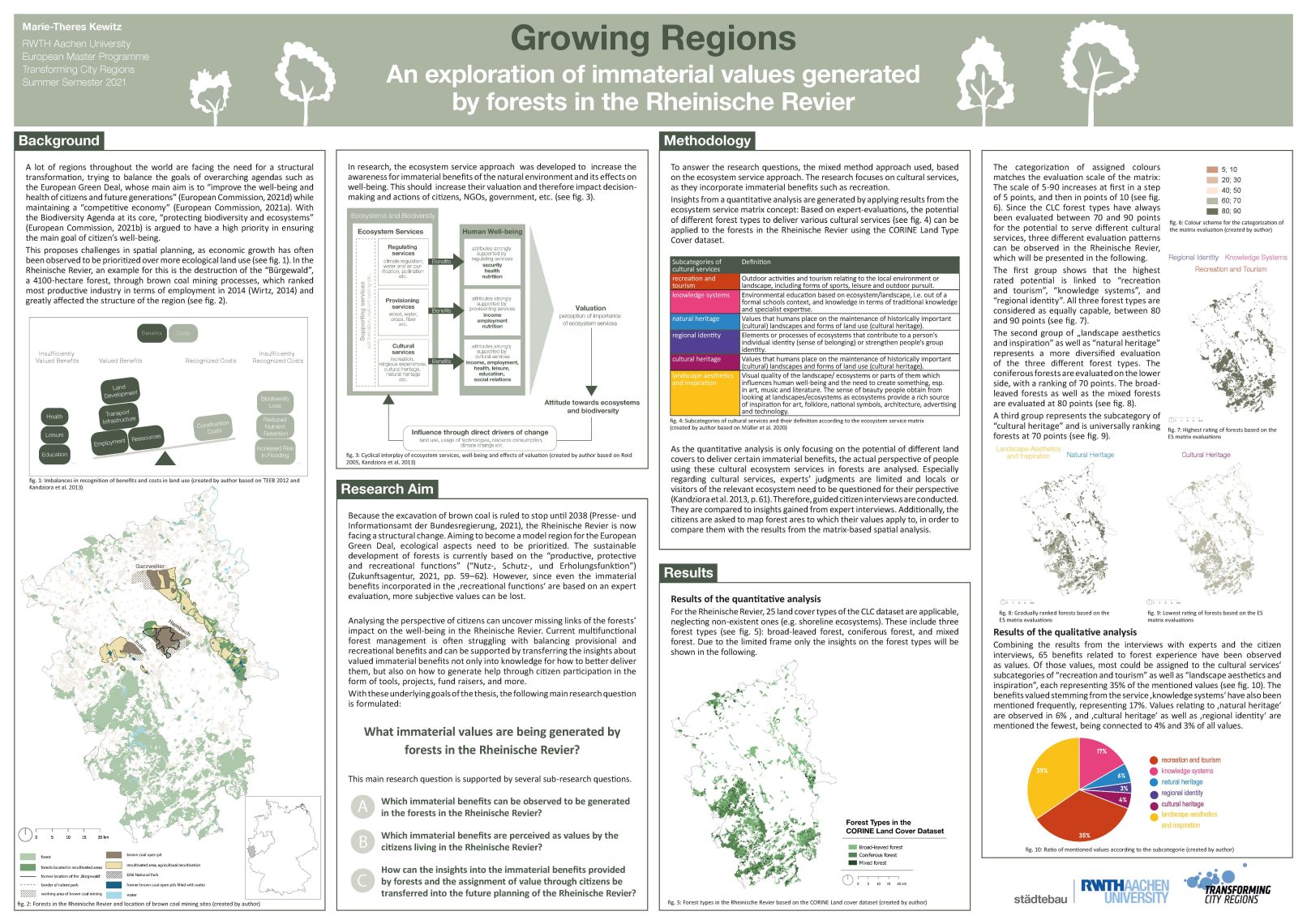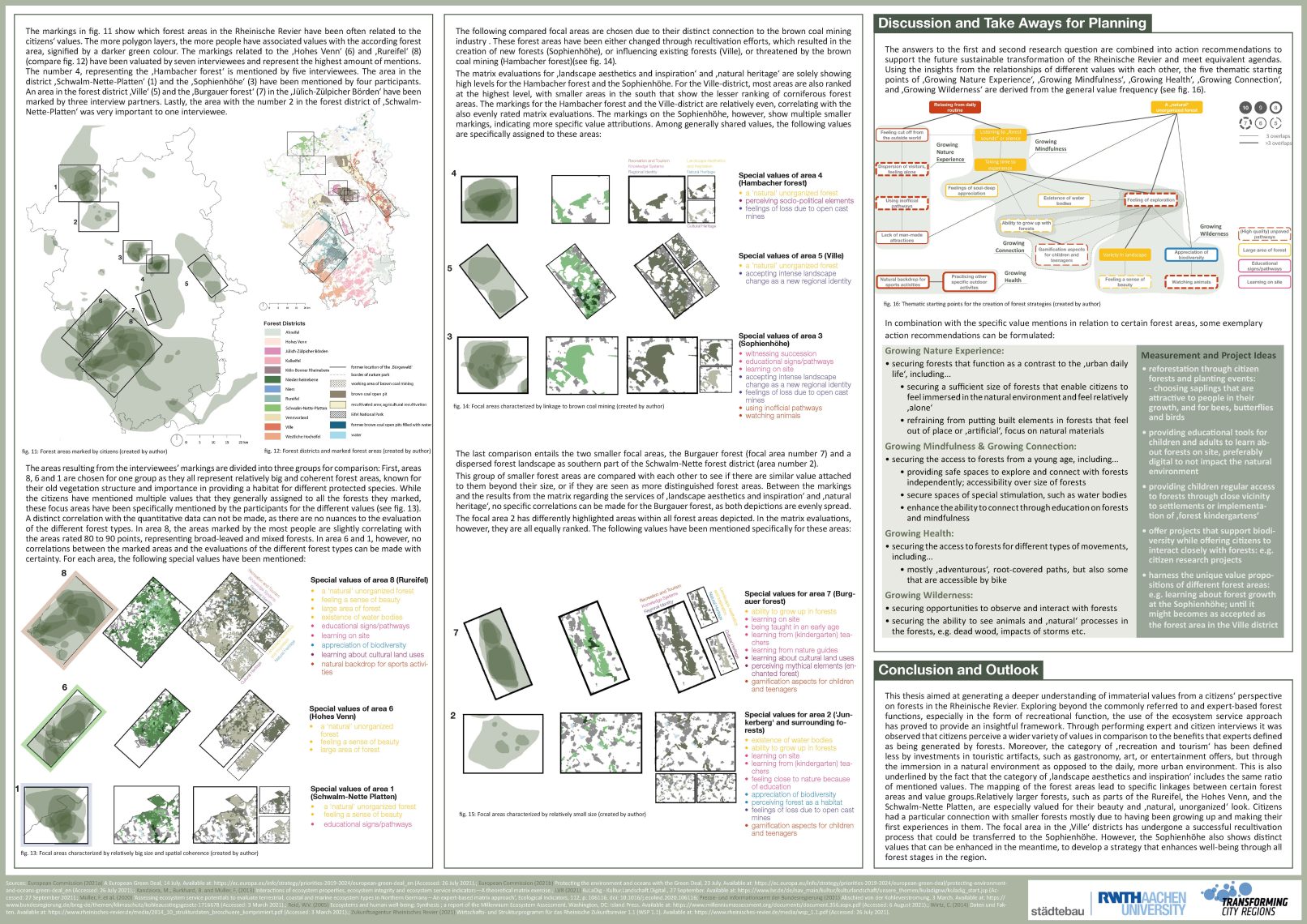Growing Regions – An exploration of immaterial values generated by forests in the Rheinische Revier
Master’s thesis by Marie-Theres Kewitz
Supervised by:
Prof. Dipl.-Ing. Christa Reicher
Prof. Dr.-Ing. Frank Lohrberg
Dr.-Ing. Daniel Münderlein
Thesis Abstract
To secure and enhance the well-being of citizens, regional planning is facing the conflict-laden task to balance social and ecological sustainability while simultaneously trying to generate economic growth. The immense impact of respective decision-making can be observed in the Rheinische Revier, where especially forests have been subjected to destruction and recultivation processes due to the brown coal mining industry, leading to very emotional responses of the public. To manage the structural change due to the ending of mining and meet the aims of the European Green Deal and the Biodiversity Agenda, efforts to recultivate forests need to be reflected upon and the meaning of forests for the generation of citizen’s well-being needs to be better understood and acknowledged. According to the ecosystem service approach, this requires a profound insight into the highly subjective immaterial values generated by the forests in the Rheinische Revier.
This research therefore investigates the perspective of citizens, comparing their sense of value to experts’ assumptions. Using the ecosystem service matrix concept as well as guided interviews with a mapping exercise, values related to recreation, aesthetics, knowledge, natural and cultural heritage, as well as regional identity and their linkage to characteristics of different forest types are analysed.
The results show that there is a wide variety of values that exceed the expectation of experts. Most values are associated with recreation and tourism, as well as landscape aesthetics and inspiration, resulting in a lack of awareness for benefits of cultural heritage and regional identity. Citizens mostly appreciate the benefit of being able to relax from their daily routine, and experiencing a ‘natural’, unorganized forest. Although the latter is especially evident in relatively bigger and more coherent forest areas such as the Rureifel, relatively small forests that are close to the citizen’s home are specifically valued for being able to grow up in them, thereby learn, interact and connect, which led to their increased ability to appreciate forests and willingness to get active in nature protection.

